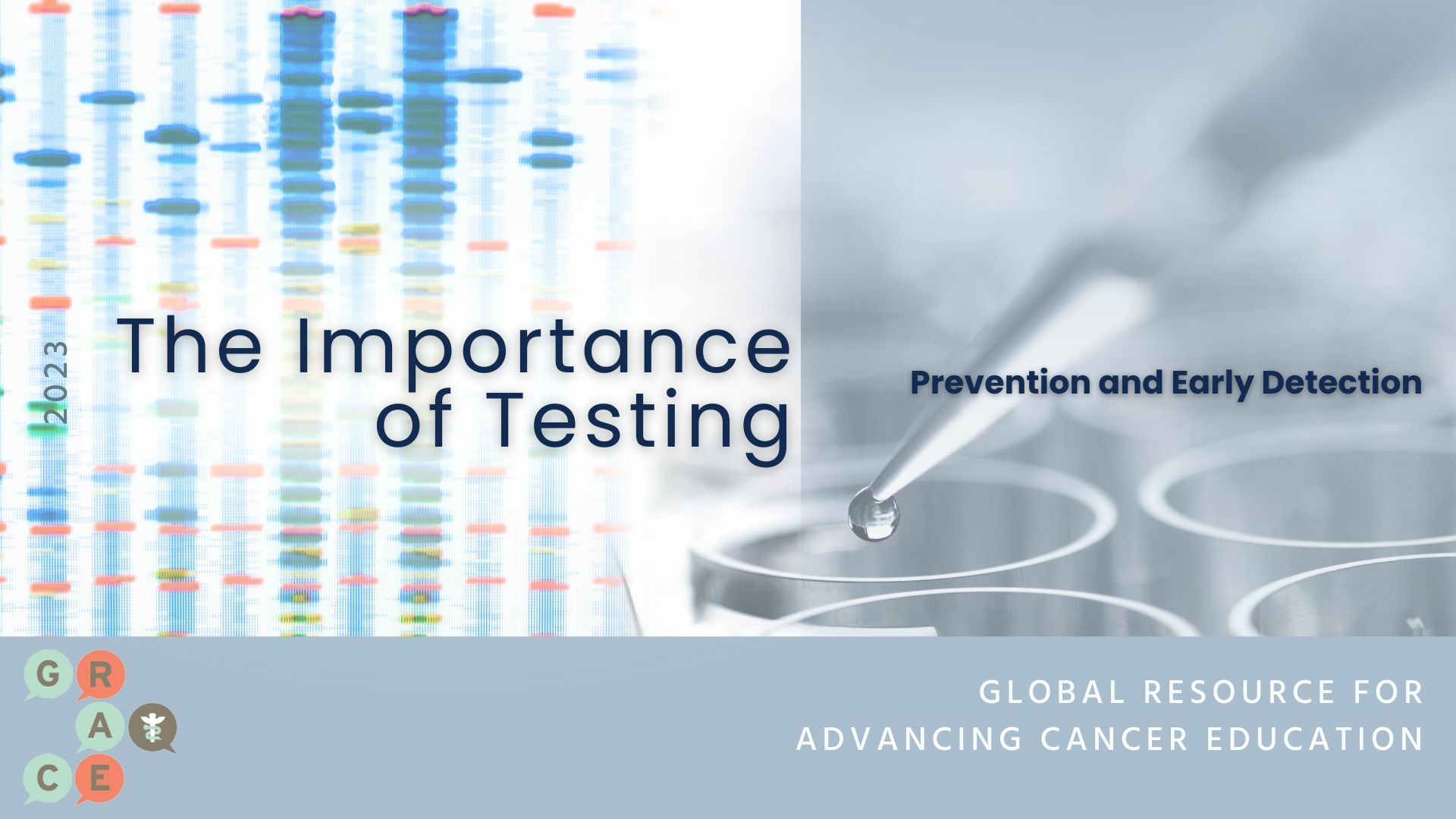Article and Video CATEGORIES
This past weekend, I had the unenviable task of debating my friend Dr. Nasser Hanna, from Indiana University and a highly respected leader in lung cancer, about maintenance therapy. He had been the expert discussant of the three key trials on maintenance therapy presented at ASCO this year (the JMEN trial of Alimta (pemetrexed) and the SATURN and ATLAS trials that evaluated Tarceva (erlotinib). These trials were all “positive”, all showing a significant improvement in progression-free survival, and the JMEN trial showing a significant improvement in overall survival (the SATURN trial was also later reported to show a significant improvement in overall survival, but those results weren’t available at ASCO, the leading oncology meeting of the year. Each of these trials supported the concept of transitioning immediately from first line therapy to a new therapy after four cycles, or adding a new agent to maintenance Avastin (bevacizumab), but Dr. Hanna added thoughtful commentary and made a convincing argument that the results from these trials weren’t strong enough to make maintenance therapy as standard of care. So it was likely in the role of the sacrificial lamb that the I was invited by the organizers of the conference to argue the “pro” side in favor of maintenance therapy as the new standard. Trying to rise to the challenge and ignore the potential of being humiliated by my silver-tongued opponent (so polished that he’s running for Congress in Indiana in the next race), I took the bait. Though I’d had a good run and won several prior light-hearted debates on controversial topics in lung cancer in the last few years, Dr. Hanna ate my proverbial lunch: the audience, already disinclined toward maintenance therapy prior to the debate (as demonstrated by the pre-debate baseline question), moved further away from the concept after hearing our arguments. The chairman of the meeting, moderating the discussion that followed, felt a need to publicly note that he felt that my talk was more compelling than the numbers suggested.
At the risk of sounding defensive, it was an uphill battle. Because I knew that there were several glaring shortcomings in the important trials, I acknowledged these in my talk, as I tried to neutralize the stinging effect of having him highlight them for the first time. The facts about the maintenance therapy trials are really not in dispute, and all we could really do was argue where the ambiguous conclusions would lead us. The maintenance therapy trials show a consistent improvement in progression-free survival, but this hasn’t really been accompanied by an improvement in quality of life, and it comes at a cost of treatment-related side effects and the inconvenience and expense of being on a treatment on a longitudinal basis, when at least some patients could remain on a break from treatment for several months, and occasionally longer, without meaningful progression. The trials that show an overall survival benefit are severely limited by the fact that only about 20% of the patients in the placebo arm received the active therapy after they progressed. Therefore, we really can’t be confident that these patients wouldn’t have done just as well If they had actually received the treatment later. In fact, a trial with immediate vs. delayed Taxotere (docetaxel) in patients with a response or stable disease after four cycles of first line chemo showed that the people on the delayed treatment arm who actually received the Taxotere after progression had just as good a survival as the people who underwent an immediate transition to Taxotere. My central argument was that these trials all illustrate that subsequent treatment is particularly effective in patients with advanced NSCLC who achieved a response or stable disease after four cycles of first line therapy, and this makes it important that these patients have the opportunity to get additional therapy. The fact is that maintenance therapy is the most reliable way for patients who have completed first line therapy to actually receive the additional treatment that is associated with better survival, and a delay with surveillance entails a risk that patients will experience a decline that makes them too ill to benefit from further treatment. I suspect that many more patients would have received Alimta or Tarceva in the JMEN and SATURN trials, respectively, if they had been done in the US rather than in Europe, where access to these agents is often regrettably limited. But even in the trial of immediate vs. delayed Taxotere, where subsequent treatment after progression was built into the trial, 38% of patients assigned to that arm never got that treatment. And when patients slip through the cracks, it’s a missed opportunity for better survival. Dr. Hanna argued that patient management in this setting should be individualized rather than programmed to proceed straight from first line therapy to subsequent treatment. I agree with that, as I do with his point that a minority of patients will do well enough on a break from therapy, or will really want or need a break regardless, that moving straight to maintenance therapy would be over-treating them. I absolutely believe that there is still an important role for individualizing plans and that not every patient should proceed to maintenance therapy, but I think there’s a value in declaring maintenance therapy as the standard because this establishes the expectation that patients should receive subsequent treatment because it’s beneficial: it becomes the responsibility of the oncologist along with the patient to pursue this treatment later or understand that they may be missing a survival benefit if the patient does not end up receiving that treatment. Just as there are patients for whom the well established standard of platinum-based doublet chemotherapy as a first line treatment is not the best choice, there should always be room to personalize the treatment plan for an individual patient. But if oncologists are too busy to follow patients closely enough to ensure that they’ll initiate further therapy in time, or if they may not have the time or ability to tailor treatment to the patient in front of them, a standard of maintenance therapy is the most reliable way to optimize survival. Finally, I made one last point that the evidence supporting maintenance therapy is stronger than the evidence we have for many other practices that are commonly pursued and sometimes portrayed as standards now, especially checking EGFR status before initiating first line therapy, an intervention that is also associated with a very significant improvement in progression-free survival but, unlike maintenance therapy, is not associated with an improvement in overall survival.  (click on image to enlarge) In many ways, the concepts are amazingly similar. Essentially, they both share the idea that people will end up doing comparably well if they get the best treatment at some point, even if it’s not “front-loaded” as an early treatment. But for some reason, and I don’t think it’s related to any evidence, oncologists seem more inclined to accept inconsistency and mistakenly believe that there is a stronger argument to be made for EGFR mutation testing than for maintenance therapy. But the audience has spoken, and I think that most oncologists outside of the room are also unconvinced of the value of maintenance therapy. For my part, I think I could have made a good argument for the “con” side as well, but I think we all should do all we can to ensure that the patients who stand to gain the most from subsequent treatment, those who had a response or at least stable disease after the first four cycles of first line chemo, receive subsequent treatment that can clearly improve survival – but only if patients actually get it. Ironically, this issue doesn’t apply for most patients, since some will show progression or decline after fewer than four cycles, and the majority nowadays are on first line Avastin and/or Alimta, which we typically continue as a maintenance therapy beyond the first four cycles – and that’s without any evidence that this adds any benefit versus stopping after four cycles. Sometimes we do things because of the arguments that support them, and sometimes we just do things because that’s the way we’ve been doing it.
(click on image to enlarge) In many ways, the concepts are amazingly similar. Essentially, they both share the idea that people will end up doing comparably well if they get the best treatment at some point, even if it’s not “front-loaded” as an early treatment. But for some reason, and I don’t think it’s related to any evidence, oncologists seem more inclined to accept inconsistency and mistakenly believe that there is a stronger argument to be made for EGFR mutation testing than for maintenance therapy. But the audience has spoken, and I think that most oncologists outside of the room are also unconvinced of the value of maintenance therapy. For my part, I think I could have made a good argument for the “con” side as well, but I think we all should do all we can to ensure that the patients who stand to gain the most from subsequent treatment, those who had a response or at least stable disease after the first four cycles of first line chemo, receive subsequent treatment that can clearly improve survival – but only if patients actually get it. Ironically, this issue doesn’t apply for most patients, since some will show progression or decline after fewer than four cycles, and the majority nowadays are on first line Avastin and/or Alimta, which we typically continue as a maintenance therapy beyond the first four cycles – and that’s without any evidence that this adds any benefit versus stopping after four cycles. Sometimes we do things because of the arguments that support them, and sometimes we just do things because that’s the way we’ve been doing it.
Please feel free to offer comments and raise questions in our
discussion forums.
Forum Discussions
Hi Blaze,
As much as I hate to say it, Welcome back Blaze. It sounds like you're otherwise feeling good and enjoying life which is a wonderful place to be. ...
Waiting for my appointment with oncologist this morning. Thank you for the response. It helps. <3
It sounds like you’re thinking of this in a very appropriate way. Specifically, it sounds like the growth of the nodule is rather modest, though keep in mind that the change...
Hi and welcome to GRACE. I'm sorry your mom is having this difficulty. An indwelling catheter is used when the pleura space continually fills and the catheter is always there to...




